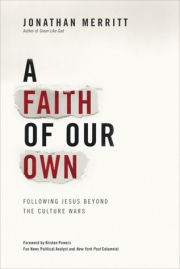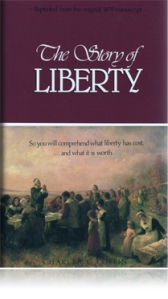Before you get a chance to say it…
I am a white, heterosexual, Christian male. I am keenly aware of the fact that this is an amalgamation of demographics which, in terms of bullying, hatred, abuse, and societal disenfranchisement we generally perceive as the aggressors, or at least the dominant party. However, that is not an excuse for anyone, including me, to dismiss my perspective on bullying, racism, sexism, homophobia, or any category of hatred or abuse by people of a powerful plurality on a less powerful minority. Lately, these topics have been on my mind for discussion and writing, but I am hesitant because my views seem to lack a certain empathy or even sensitivity for the victims of hate and abuse. It seems inevitable that someone, disagreeing with my opinion on racism or sexuality, will attempt to invalidate my opinion on the basis of my race or sexuality, so it seems appropriate to place this declaration right at the outset of this blogging adventure.
So yes, I am white. This limits my perspective only as much as the perspective of a member of a racial minority is limited. I am thoroughly incapable of experientially understanding what it is like as a law-abiding black man to walk through a predominantly white neighborhood and have a woman on the other side of the street briefly glance at him with concern. But that black man doesn’t really know what it is like to be that white woman on the other side of the street either. But no one attempts to disqualify his opinion or feelings about that experience.
The fact that my perspective is to some extent limited by my experiences should go without saying. And my experiences are largely influenced by my race, gender, religion, and sexuality. But the same is true of those of minorities in these categories.
While my opinions may at times seem insensitive to their perspective, I almost always feel that discussions of these topics exhibit flagrant disregard for any potential defense of the majority. And when someone from the dominant plurality tries to point this out, they tend to come off like an elephant complaining that the mouse stepped on his toe. I am convinced that this is largely a consequence of the vaguely whiny/angry tone in which I usually hear them convey their point and because they are speaking to a minority audience that is predisposed to disregard any opposing perspective as being racist, sexist, homophobic, etc.
- Can’t we all just get along?
All that said, I don’t intend to defend racism, sexism, or any form of hatred or abuse on my blog. But I will periodically take views on these topics that will seem insensitive to the victims or minorities in these situations, and I resolutely reject any notion that these views lack value or veracity simply because they come from a dominant party who perhaps has less experience as the victim of hate or abuse than many other people.
I am unapologetically a white, heterosexual, Christian male, but that is not all that I am. I am a whole person, and will not have my opinions or feelings (or anyone else’s for that matter) reduced to a consequence of my demographic and dismissed as irrelevant or inaccurate. This sort of premature dismissal is an enormous obstacle to civilized progress-driven discussion.
ALL opinions are welcome to comment. However, please feel free to place all your insults, sarcasm, and incivility ELSEWHERE in cyberspace. I implore you to contribute respectfully and intelligently to a discussion that may benefit all involved by mutual education and edification.

 The fact of the matter is that Jonathan Merritt is spot on when he identifies the growing schism between the older generation of veteran Christian culture warriors and the younger generation of Christians who hope to peaceably work out our faith without selling our souls to the political power machine. If I had read this book alone as opposed to reading it to my dad, I would likely have thought that some of Merritt’s statements regarding the lack of adaptability of the old guard of Christian conservatives to this renewed method of Christ-likeness were over-stated. I know many older Christians who occasionally make disappointingly vitriolic statements about political ideas and people, but I generally consider most or all of them to be reasonable people.
The fact of the matter is that Jonathan Merritt is spot on when he identifies the growing schism between the older generation of veteran Christian culture warriors and the younger generation of Christians who hope to peaceably work out our faith without selling our souls to the political power machine. If I had read this book alone as opposed to reading it to my dad, I would likely have thought that some of Merritt’s statements regarding the lack of adaptability of the old guard of Christian conservatives to this renewed method of Christ-likeness were over-stated. I know many older Christians who occasionally make disappointingly vitriolic statements about political ideas and people, but I generally consider most or all of them to be reasonable people. pushed the idea of liberty along through history, until it finally arrives in America – it’s new home – with the Puritans at the beginning of the seventeenth century.
pushed the idea of liberty along through history, until it finally arrives in America – it’s new home – with the Puritans at the beginning of the seventeenth century.